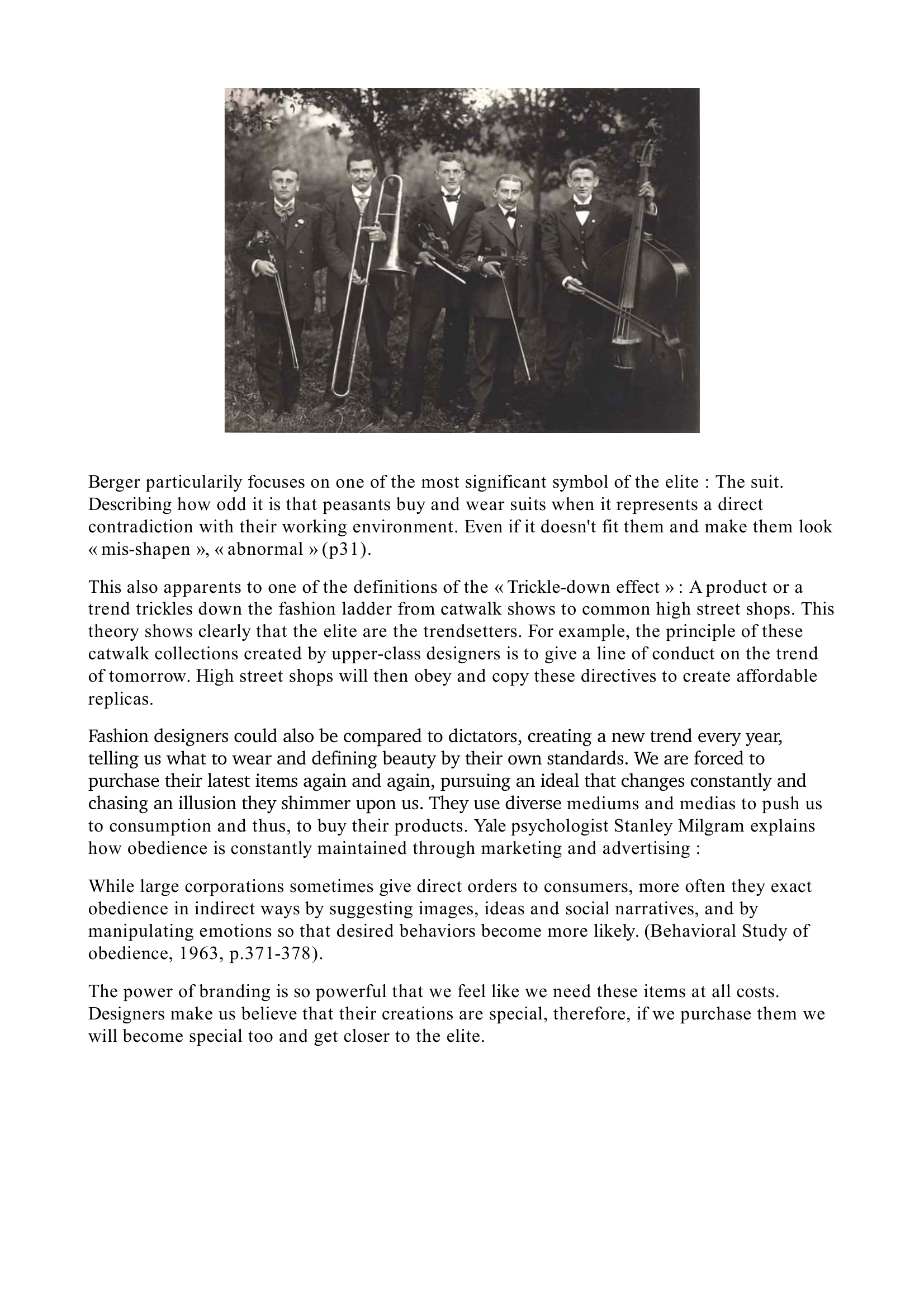essay2
Publié le 04/12/2014

Extrait du document
«
Berger particularily focuses on one of the most significant symbol of the elite : The suit.
Describing how odd it is tha t peasants buy a nd wear suits when it represents a direct
contradiction with their working environment.
Even if it doesn't fit t hem a n d make them look
« mis-shapen », « abnormal » ( p31 ).
This also apparents to one of the definitions of the « Trickle-down effect » : A product or a
trend trickles dow n the fashion ladder from catwalk shows to common high street shops.
This
theory shows clearly tha t the elite are t he trendsetters.
For example, the principle of t hese
catwalk collections created by upper-class designers is to give a line of conduct on the tre nd
of tomorrow.
High street shops will then obey a nd copy t hese directives to create affordable
replicas.
Fashion designers could also be compared to dictators, creating a new trend every year,
telling us what to wear and defining beauty by their own standards. We are forced to
purchase their latest items again and again, pursuing an ideal that changes constantly and
chasing an illusion they shimmer upon us. They use diverse mediums an d medias to push us
to consumption a n d th us, to buy their products.
Yale psychologist Stanley Milgram explains
how obedience is constantly maintained through marketing an d a dvertising :
While large corporations sometimes give direct orders to consumers, more often they exact
obedience in indirect ways by suggesting images, ideas a nd social narratives, a nd by
ma nipulating emotions so tha t desired behaviors become more likely.
(Behavioral Study of
obedience, 1963, p.371-378 ).
The power of bra nding is so powerful t hat we feel like we nee d t hese items at all costs.
Designers make us believe tha t their creations are special, therefore, if we purchase them we
will become special too an d get closer to the elite..
»
↓↓↓ APERÇU DU DOCUMENT ↓↓↓

































